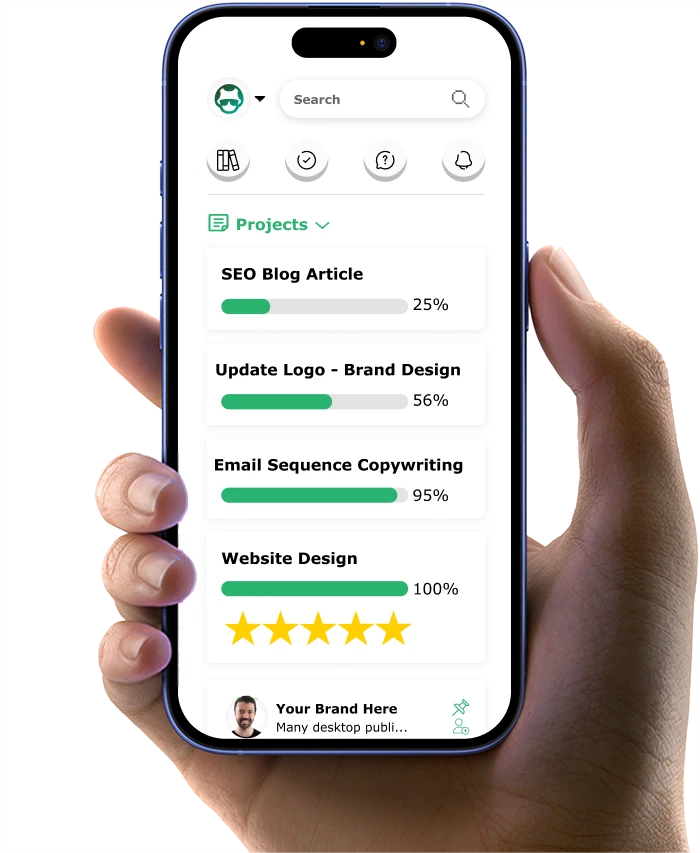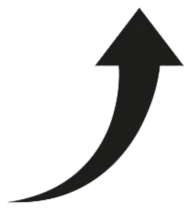17 Ultimate Ways to Segment Your Client’s Audience

Just the other day, I received a push notification from my car’s manufacturer.
It read, “For our educators....get 10% off.”
I’m thinking “Why are they sending me this? I’m not an educator.”
And then it dawned on me.
This company clearly doesn’t have an established segmentation strategy.
Without segmentation, your marketing is in disarray.
Equally as troubling, it means you can’t personalize the experience for customers.
And that’s too bad because personalized content leads to, on average, a 55% increase in conversions. That’s according to a post-COVID Yieldify report.

But your agency is always looking for new ways to segment your audience, right?
You don’t want to send out the same generic messaging to all your client’s customer base.
Luckily for you, with this resource, you’ll get:
- 17 ways to effectively segment your agency’s audience
- A clear understanding of why these forms of audience segmentation will improve your marketing efforts
- Several real-world examples of audience segmentation
A customer who receives personalized content is a happy customer.
So stick around to learn these 12 ways to segment your audience and deliver the content your audience wants.
Want to delegate all your marketing and funnel work done—without the headaches of hiring? Download our free guide: 33 Marketing Projects You Can Delegate to Growbo and discover how to save 100+ hours a month, grow faster, and scale without the overhead.
#1 Way to Segment Your Audience: By Age Cohorts
One of the most common ways to segment your agency’s audience is by age.
Because, as you know, people’s tastes and consumer preferences differ among generations.
For example, millennials enjoy mobile shopping much more than Baby Boomers and Gen X.

Moreover, brand content preferences vary amongst age cohorts as well.
Only 22% of 18-24-year-olds in 2017 wanted to see emails from brands, per HubSpot.
Meanwhile, 57% of 45-54-year-olds and 68% of 55 or older do want emails.

Also, younger people are much more concerned with corporate social responsibility (CSR), according to a Harvard Business Review from 2014.

As an example of a company using demographic segmentation, let’s look at Canon.
Back in 2018, Canon wanted to start targeting young, casual photographers. The brand had always targeted a high-end professional segment.
In its marketing strategy, the company started incorporating amateur photographers and hobbyists in all its video promotions and storytelling.
Below is a screenshot from one of Canon’s YouTube videos during the campaign.

And the influencers they teamed up with resonate with the segment.
They also partnered with big cinema films like the Pirates of the Caribbean franchise and King Arthur: Legend of the Sword to change brand perception.
Results:
- 8 times higher engagement rate than the benchmark
- Reach was 57% higher than the target
#2 Way to Segment Your Audience: By Profession
To segment your agency’s audience by profession is really easy.
All you have to do is ask for a customer’s profession in a sign-up form.
And according to a report by Formation, 81% of consumers are willing to hand over personal information for a more personalized experience.
You can show your customers that you know them on a deep level by offering profession-oriented content tailored for them.
As a tip, try to think of certain times of the year where reaching out to a profession-based segment is most applicable.
For example, Home Chef sends a promotional email to the teachers and nurses on its email list shortly before National Teachers Day and National Nurses Day.

If you want to hear more about the advantages of using a segmented email list, check out Matt’s explanation.
#3 Way to Segment Your Audience: By Usage
Segmentation by usage refers to personalizing the consumer experience based on how they use your client’s products and services.
Remember, if your client sells a variety of products or services, then you want to segment your audience by what content they will be the most receptive to.
For example, BabyCentre UK segments its audience on Facebook Messenger.
A user will be asked a few questions about their childcare needs. And then they will start receiving suggested content that aligns with their personal needs.

In the example above, a consumer signals to the chatbot that she has concerns about weaning.
Then from there, she gets signs to look out for, recipes for when the baby is ready for solid food, and other related topics.
According to ubisend, the company that sells the chatbox tool to BabyCentre UK, the read rate for the Facebook Messenger app was 84%. And the click-through rate was 53%.
#4 Way to Segment Your Audience: By Consumer Attitudes

Attitudes fall under the umbrella of psychographic segmentation.
So what you do is break up your audience into segments that highlight their attitudes or general outlook on the brand, the industry, or even life in general.
Remember, customers are people. And people vary drastically in their thinking.
As a good example, PatientBond is a company that specializes in digital outreach to patients in the healthcare industry.
Earlier this year, they were hired by TriHealth Cincinnati to segment patients based on TriHealth’s psychographics insight.
They created 5 distinct categories of patients based on their attitudes toward healthcare and how often they seek medical attention.
And these insights helped health coaches with their outreach script post appointment.

And the results:
- 83% of patients saw significant progress in their health goals
- 28% reduction in "at-risk" patients
- 5:1 ROI
Even more, another health provider client of theirs increased online conversion rates by 750% using psychographic segmentation.
Let’s take a look at the next way you can segment your agency’s audiences.
#5 Way to Segment Your Audience: By Purchase History
To learn how to segment your audience based on past purchase behavior, look no further than your Amazon app.
They’re the kings at this.
In fact, McKinsey & Company says that 35% of all Amazon purchases are a result of product recommendations.

According to consulting firm Invesp, 56% of online shoppers are more likely to head back to your website when you offer product recommendations.

Barilliance is a company that specializes in web personalization.
And according to their research on their clients, customers are 550% more likely to end their session with a completed purchase than those that do not receive recommendations.
#6 Way to Segment Your Audience: By Previous Browsing Behavior
Previous browsing behavior may include:
- Duration on page
- Number of sessions with your website
- Sales pages that are looked at
- Exit intent
- Places on page that are most viewed (heatmaps)

With that information, you can segment your audience based on their interests.
According to customer journey optimization specialists at Yieldify, they segmented their client’s website visitors based on the number of visits they’ve made.
So first-time visitors were met with a $15 off and free shipping pop-up.
And returning customers were reminded of premium services.

As a result, they saw a 34.02% conversion rate uplift for new visitors and a 29.24% increase for returning visitors.
#7 Way to Segment Your Audience: By Firmographics

Firmographic segmentation is most useful for your B2B clients.
Or if your agency is trying to acquire new clients.
And 7 out of 10 business buyers expect a touch of personalization from marketers like you. That’s according to a Salesforce report.
Here are some of the ways to segment your B2B audience:
- Industry
- Company Size
- Location
- Performance
- Budget
- Purchase Frequency
- Purchasing Cycle
By breaking up your B2B customers into segments, you can personalize the content that you send them.
As an illustration, monday.com offers workplace tools for teams to stay organized and on top of their tasks.
Once you land on their website, you have the option to click on all the departments and workflow needs your organization requires.

From there, monday.com will assign you to a segment accordingly. By doing so, the ongoing process and future content deliverables match your organization’s specific needs.
Then there’s the Finnish SaaS company, Leadfeeder.
Leadfeeder allows you to see what companies visit your website without them filling out contact information.
And within the platform, you can target companies based on firmographic data such as company size and industry.
Then, you’ll only get notified when someone fitting that criteria visits your site.

#8 Way to Segment Your Audience: By Life Stage
Now, I know what you’re thinking. Isn’t this the same as segmenting your audience by age?
While they are closely related to one another, life stage segmentation targets consumers based on what’s happening in their lives.
Life stage variables are often aligned with age groups but not everyone progresses through life at the same rate.
Some people might not go to college until they’re 35. Knowing that, an online tutoring service would still want to target older college students with segmentation.
As a real-world example, let’s take a look at Bank of America. They target consumers based on the 6 major life stages:
- Early Adulthood
- Parenting
- Caregiving
- Retirement
- Widowhood
- End of Life/Legacy
And Bank of America employees are even trained to specialize with each client segment.
On its Family Life Banking page, there are resources for visitors to choose from based on their life stage. And depending on their choice, they segment themselves.
Then, they’re directed to a microsite tailored to their segment.

Let’s move on to the next way your agency can segment its client’s audiences.
#9 Way to Segment Your Audience: By Leveraging Real-Time Website Data
Here are some stats brought to you by our friends at Instapage:
- Personalized homepage promotions influence the purchasing decisions of 85% of consumers.
- Nearly 2 out of 3 email marketers say dynamic content is the most useful personalization tactic.
- 74% of customers get upset when a website is not personalized.
Fortunately, there are some really cool software tools to accommodate these truths.
One such tool is real-time website copy optimization.
You can personalize the copy that someone is presented with by segmenting your audience by tastes.
For example, with RightMessage’s software, a new freelancer sees something different than an experienced freelancer.
Now, I’m not talking about product recommendations.
This is more about things like customized sales copy, testimonials, and e-book opt-ins that are personalized for the visitor.
As an example, look below.

So this copy indicates that the freelancer has already been in the field for some time.
But for the next screenshot, notice how the copy changes for site visitors that are new to freelancing.

Segmentation is based on things like blog topic preferences, survey answers, and where the visitor came from.
RightMessage says that, on average, conversion rates are increased by over 24% using their service.
#10 Way to Segment Your Audience: By Technographics
Do you ever wonder what kind of technology your target audience is using?
What kind of apps do they use?
How about customer relationship management platforms?
Technographic data tries to shed light on these types of questions.
By doing so, marketing and sales teams can exemplify more familiarity to each prospective customer. Moreover, you save time researching.
With technographic data, you gain an understanding of what technologies your prospects already use. Knowing that, you also know what their needs are and which ones aren’t being accommodated.
You might even be able to tell how much money customers are spending on a service package.
Technographic data can also play a role in which device or devices you want to target in a campaign.
Are most of your sales conversions being done on a mobile device? Then prioritize mobile optimization and send SMS sales pitches.
Back in 2015, Movable Ink found that only 32% of all email opens are from PC users.
Strangely enough, 52% of all email conversions are done on PC.
This signals that for more aggressive email marketing tactics, focus more on desktop.
But in general, mobile is the leading device used in digital sales worldwide at 73% in 2021. That’s according to a report by Merchant Savvy.

#11 Way to Segment Your Audience: By Geography
You must keep geographical differences in mind when it comes time to segment your audience.
That way, you can create content that is hyper-targeted for your audience.
For example, food subscription service Oddbox started expanding to areas outside of London.
Using geographic segmentation, they started to place social media ads in front of residents of the nearby city, Brighton.
As you can see below, an ad for a Londoner differs greatly from an ad for a Brighton resident.

To further illustrate, Airbnb sends personalized emails to customers derived from geographical segmentation in order to suggest nearby vacation properties.

#12 Way to Segment Your Audience: By Timing
Admittedly, this one is very similar to geographic segmentation.
But it differs in that it’s more about the specific time to send marketing material to your customers.
You can come up with copy that’s so persuasive that recipients will think Don Draper himself is communicating with them. But it means nothing if you send it to them at the wrong time.
Because it’ll just get buried with the other thousands of emails people get every day.
According to a 2020 report by inbound marketing firm GetResponse, the best day to send out an email for high click-through rates is Tuesday.

And the best time globally to send an email for clicks is 6 AM.

But this isn’t one-size-fits-all.
Not every industry consumer base will respond the same way to these timings.
In general, it’s pretty safe to send emails during normal business hours.
To further enhance the timing of your emails, use audience segmentation.
With tools such as MailerLite, your agency can segment its audience by time zones. That way, they all receive your email at an optimal time.

#13 Way to Segment Your Audience: By Loyal Customers
According to Inc. 5000, loyal customers spend 67% more than new ones.
And 75% of them expect a differentiated shopping experience compared to other customers.
So if you’re not delivering on that, then it’s likely you’ve already lost some of your biggest fans.

To identify your client’s most loyal customers, simply find who has spent the most amount of money on your brand. Define a minimum dollar value spent and use that as the cut-off.
From there, you offer loyal customers, you guessed it, loyalty programs.
Remind them when they have unused points built up.
Offer them more chances for rewards than other customer segments.
Invite them to an exclusive event.
Send them personalized gifts.
For these reasons, they’ll stay loyal and continue being your top spenders.
And another thing that doesn’t hurt...according to Motista, a company that helps brands sell using predictive emotions, 71% of loyal customers will recommend your brand as opposed to 45% of your other customers.
Free marketing!

#14 Way to Segment Your Audience: By Cart Abandonment

According to Wishpond, the average click-through rate for retargeting ads is 10x higher than normal display ads.
That’s a staggering amount of leads you can win back.
So, it’s best to segment your audience by cart abandonment so that you can send retargeting ads their way.

Luckily, you already know how to bring back website visitors with retargeting ads.
And SalesForce says that 77% of all online carts are abandoned.
But fortunately, research from Moosend reveals that cart abandonment emails have a scary high open rate of 45%.

To segment your audience by cart abandonment means you give yourself the chance to win back up to over 10% of leads
As an example, the email marketing platform Sumo sends out emails to its cart abandonment segment.

Not only do they remind the leads, but they also entice them with a discount.
Has your agency considered winning back customers that aren;t engaged any more? You might find this next way to segment your audience useful.
#15 Way to Segment Your Audience: By Lapsed Customers
Judging from customer.com’s customer loyalty study from 2018, only 35% of your customers will be loyal to you.
And the rest will look elsewhere for better deals.

According to Finances Online, a 5% increase in customer retention can lead to more than twice as much in revenue.
And customer churn rates can be up to 30% in some global industries.
Not to mention, it’s much cheaper to focus on pre-existing customers than it is to acquire new ones.
One way to get lapsed customers re-engaged again is by creating a segment solely for them. Then, you can send personalized content that will win them back.
For example, Black Diamond, an industry leader in selling outdoor gear, used hyper-targeted inactive audience segmentation to win customers back.
Using past data on purchasing history, the company made use of cross-selling and upselling techniques that were highly personalized.
As a result, they saw a 1,001% increase in revenue per email when targeting lapsed customers.
Additionally, Black Diamond achieved a 4.48 ROAS on Facebook ads targeting lapsed customers who were not engaged with email.
Another way to win back lapsed customers is with replenishment updates.
Apparel company Uniqlo lets disengaged customers know when they have a previously out-of-stock product in inventory.

#16 Way to Segment Your Audience: By Reminders
Do any of your clients sell products or services that expire? And either need to be used up or need to be renewed?
In 2021’s Membership Marketing Benchmark Report from Marketing General has found that 29% of organizations think they lose customers because they forgot to renew their membership.
Here are some examples:
- Credit cards
- Loyalty rewards
- Food products
- Batteries
- Memberships
Segment your audience by when they need to be reminded to take action.
As a good illustration, let’s look at Project Management Institute’s strategy.

The company’s marketing team has a big audience and one of its segments stems from the date of membership activation.
In “X” amount of months or years, the member is notified 20 days in advance that his or her membership is expiring.
That way, the organization retains more customers.
#17 Way to Segment Your Audience: By New Customers
Cost per acquisition can be expensive.
In fact, it can be as high as nearly $2,000 for inorganic CAC in the higher education and college industry, according to FirstPageSage.

That’s why when you acquire those special people, you put them into a new customer segment that receives nurturing content just for them.
A warm and friendly welcome email is always a great start. It can hook them and allows them to get to know the brand better.
And it's a chance for your agency to clearly define what they can expect from your client.
Below is an example from the PC cleaning software company MacPaw.

As you can see, it’s inviting and lets customers know that they can expect 1 or 2 emails per month.
Take things a step further and create an entire sequence tailored for new customers. Not just a Hello message.
In doing so, the customer onboards more smoothly.
And there are plenty of free marketing automation tools that convert.
Conclusion
Want to delegate all your marketing and funnel work done—without the headaches of hiring? Download our free guide: 33 Marketing Projects You Can Delegate to Growbo and discover how to save 100+ hours a month, grow faster, and scale without the overhead.
As I’ve said before, there are many ways you can segment your audience. It’s up to you and your client’s specific needs.
But I’ve laid out 17 of these ways in this article. That gives you plenty of options to choose from going forward.
At the end of the day, personalization is the name of the game in digital marketing. And without proper segmentation, your audience will get sick of you.
And no one likes to receive the same message as everyone else is getting. So be sure to use some of these means of audience segmentation for your future marketing campaigns.
Audience segmentation can be a tricky craft to master. Especially so for newer agencies.
In the event that your agency is still using training wheels for audience segmentation, don’t hesitate to book a call with one of our consultants today.
We are seasoned veterans when it comes to audience segmentation and with our team, you'll be on the fast track to more targeted campaigns that resonate with your audience.
Did you learn anything new today?
Do you plan to use something from this list that you previously haven’t used?
Let me know in the comments below.
Keep Growin’, stay focused.
Mark













